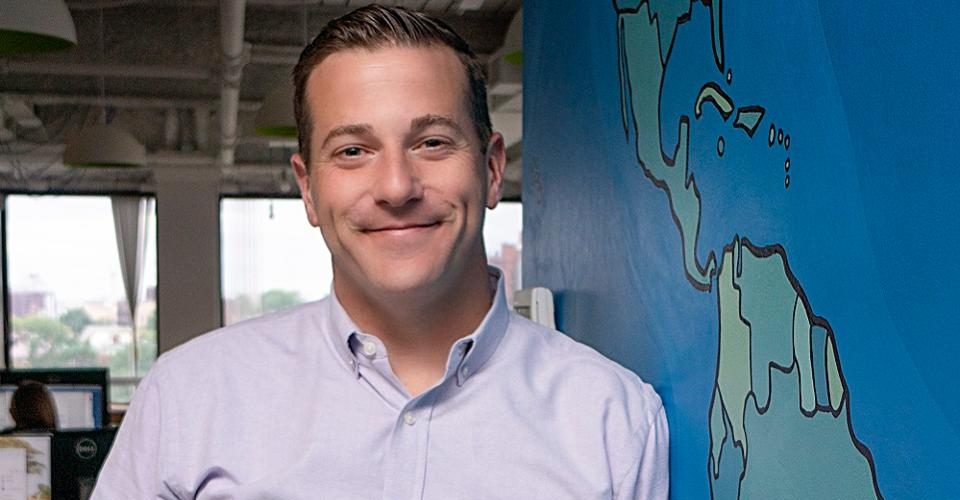
Flywire CEO Mike Massaro has helped build a payments company that expects to reach $100 million in annualized revenue this year. PHOTO CREDIT: BRENT MILLS
Startup Raises $100 Million To Allow College, Hospital And Business Bills To Be Paid In Foreign Currency
Flywire, a Boston-based fintech company that helps universities, hospitals and businesses accept foreign-currency payments, has raised $100 million in new funding. Temasek, a Singapore investment company with a $235 billion portfolio, led the Series D round. Bain Capital Ventures and Fidelity’s F-Prime Capital also contributed.
The 300-person company expects to reach annualized revenue of $100 million later this year, and it closed the new investment round at a significantly higher valuation than its 2015 level of about $100 million. The new valuation falls short of $1 billion, but Flywire declined to disclose further details.
Founded in 2009 by Spanish entrepreneur Iker Marcaide, Flywire (formerly called peerTransfer) started by solving a problem that international college students often faced. Let’s say a Chinese student attending Boston University needed to pay her $50,000 annual tuition. She’d have to pay in dollars and likely use a bank transfer wire, incurring exorbitant foreign-exchange-rate fees of 3% to 5%. And the transaction might not settle for up to 10 days.
Flywire built software that connects banks to universities. Now the Chinese student can pay her tuition in yuan and can use payment methods she’s familiar with, like Alipay or WeChat. Likewise, a U.S. student at a foreign school can use a Visa card or PayPal to pay tuition in dollars. “Flywire becomes the pay button,” CEO Mike Massaro says.
It facilitates lower foreign exchange rates for students of about 1% to 2%, because it processes high volumes—it will process $5 billion this year—and it owns the end-to-end process, cutting out some middlemen. On the university side, instead of receiving thousands of payments like they used to, schools receive daily settlements that are aggregated. They don’t have to hold various foreign currencies, and they receive more transparency into and customer support for the payments.
Jeff Kauflin
Forbes
Jul 26, 2018, 10:00am
YOU MAY ALSO LIKE

Buy these payments stocks: No.1 rated analyst
CNBC Television
Published on Jul 11, 2018

Pride in London 2018 – Mastercard
Institute of Promotional Marketing
Published on Jul 9, 2018











